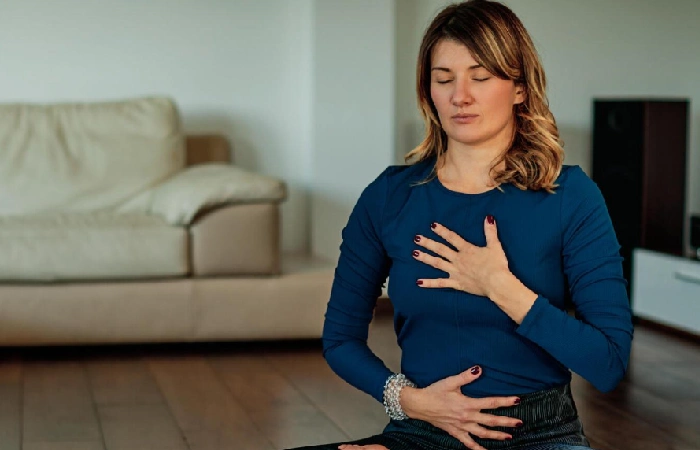Stress, a physiological and mental reaction to perceived dangers, can result in physical discomfort, anxiety, and behavioral problems. Exercise, relaxation, a healthy lifestyle, social support, achievable objectives, and a positive attitude are all effective stress management approaches.
Table of Contents
How To Over Come Stress
To Exercise
Including some animal activity in your daily routine will gradually reduce stress. All sports can help: from daily hour-long walks to swimming in the pool, to the office
You have to make sure that the practice of the exercises is constant because practising it once in a while is not the best way to achieve your goal of letting go of stress.
Eat Healthily
A good diet can lower lipid and blood pressure, and stress can be reduced by slow chewing, avoiding caffeine, and include fresh vegetables, milk, dark chocolate, red wine, almonds, citrus fruits, and beans.
Write Down Your Thoughts
An excessive way to deal with the stress of everyday life is to write down somewhere, preferably in a dedicated notebook or notebook, the thoughts you have, starting with: how your day went, what conflicts arose and how you could better manage or solve way
This therapy will help you reason with yourself and try to see from the outside the thoughts that cross your mind, and that can cause you stress.
Practice Breathing Techniques

Deep breathing methods should be used for ten minutes before and after sleep to clear your mind, raise optimism, and increase endorphin production, all of which promote overall well-being.
Sleep Quality
Sleep reduces stress levels, and it is best if this process lasts an average of 7-8 hours a day. With this number of hours, you can reach “deep sleep”, which is the third stage of sleep where the body recovers energy and allows us to start the day better.
Have Fun in Your Free Time
Having time for ourselves is fundamental because it allows us to enjoy our time alone, get to know each other, and learn more about ourselves. Stress also occurs when, because of homework, we set aside our personal and, with it, the activities that help us connect with our interior.
Take the time to do the hobby you are passionate about neighboring. It will help you reduce stress and feel refreshed, relaxed and increase your creativity.
Disconnect
We know how essential it is today to be connected to social networks. It is proven that its excessive use causes anxiety and, therefore, stress.
Try to disconnect for a few hours a day and, if possible, practice some meditation and breathing exercises to clear your mind of unnecessary information.
As you will see, eliminating self-stress only involves changing habits and implementing healthier aspects of your life, where you relax your body and nourish your soul. Get to know yourself and enjoy your favorite leisure time—sides of the beings who love you the most.
Eat Healthy: light and healthy meals help reduce stress. Eat, chew, and avoid fat, hard-to-digest, and spicy foods.
A hot bath: allows you to relax and helps eliminate muscle tension.
Avoid Isolating Yourself: when you’re alone, you continue to analyze the details of the situation that generates pressure, which only increases it.
Change Routines: In times of stress. It is better to change the usual practices and help to disconnect, as they say colloquially.
Steward: This is especially important when stressful situations arise in the workplace. You have to learn to work in a team and delegate to other colleagues. You cannot control absolutely everything or take on all the workload alone. Good organization is also essential.
Laughter: Laughter is an excellent stress therapy.
Establish Priorities: You must learn to prioritize. Relegating things that stress you to last place since they have been identified as “toxic”.
Get Enough Rest: Sleep is always restful when a person is faced with a stressful situation. So it is necessary to maintain proper sleep hygiene. Eat dinner an hour before bedtime, maintain good darkness and temperature in the room and do nothing else—activity in bed. Such as reading or watching television.
Conclusion
Individuals experience stress differently, so find strategies that work best for you. Seek healthcare professionals for personalized guidance. Take precautions to manage stress and maintain overall well-being.

